In pursuing a healthier lifestyle, venturing into caffeine-free teas can be a transformative experience, bringing you closer to nature and its myriad benefits. When it comes to selecting the best caffeine-free teas, you have a plethora of delightful options to choose from.
Start with the calming Chamomile Tea, the perfect nighttime companion to soothe your senses. The refreshing flavor of Peppermint Tea not only invigorates your taste buds but also aids in digestion, making it an excellent choice for an after-meal brew.
Rooibos Tea stands out as a favorite for a rich source of antioxidants that supports heart health. The vibrant Hibiscus Tea is not just a treat to your palate but also potentially aids in lowering blood pressure.
Embrace the soothing effects of Lemon Balm Tea, an excellent option to ease stress and foster relaxation. Additionally, the emerging trend of Mushroom Tea should not be missed. With its earthy flavors and immune-boosting properties, mushroom tea is a remarkable addition to your caffeine-free tea collection.
Join us as we dive deeper into this topic and explore innovative ways to enjoy these teas. This detailed guide will answer all your questions about caffeine-free tea.
The Need for a Caffeine-Free Lifestyle

The Drawbacks of Caffeine Dependency
In today's fast-paced world, many of us lean heavily on caffeinated beverages to get through the day. However, an overreliance on caffeine can have several negative impacts on our health and well-being.
Prolonged caffeine dependency can lead to disrupted sleep patterns, heightened anxiety, and digestive issues. If you feel restless or experience headaches without your daily dose of caffeine, it might be time to explore a caffeine-free lifestyle.
The Benefits of Reducing Caffeine Intake
Transitioning to decaffeinated tea or a completely caffeine-free version of your beverage routine can bring numerous health benefits. For starters, you may notice a substantial improvement in your sleep quality and a natural decrease in anxiety levels.
Including herbal teas in your diet can also foster better digestive health. Moreover, enjoying a cup of herbal tea allows you to avoid the midday crash often associated with caffeinated drinks, promoting a steady, calm energy throughout the day.
Personal Anecdote or Testimonial: Transitioning from Caffeinated to Caffeine-Free Teas
This caffeine-free discussion brings to mind the journey of Arianna Huffington, a renowned author and businesswoman who openly shared her struggles with caffeine dependency.
In her pursuit of a healthier lifestyle, she echoed the sentiments of many when she narrated her transformative experience transitioning from caffeinated to decaf tea.
Huffington mentions,"I remember the initial resistance, the difficulty finding caffeine-free tea options that resonated with my preferences. But as I delved deeper, I uncovered a fascinating world of caffeine-free herbal teas, each offering a distinct flavor and a bundle of health benefits."
What Makes a Good Caffeine-Free Tea?

Criteria for Selection: Taste, Health Benefits, Popularity, and Reviews
Trying to find caffeine-free tea that suits your taste and needs is an exciting venture, especially for tea lovers. The perfect brew can be found by considering several criteria, such as taste, health benefits, popularity, and reviews.
A wise tea lover knows that venturing into the world of herbal teas is about avoiding too much caffeine and embracing the healthier lifestyle that comes with it.
From the calming effects of chamomile to the vibrant zest found in peppermint tea, there's an herbal tea for every palate. However, it is essential to delve into the reviews and gauge the popularity of various decaffeinated teas to make an informed choice.
Introduction to Different Types of Caffeine-Free Teas
As we dive deeper into caffeine-free beverages, you'll notice various options beyond the commonly misconceived notion that only green tea falls in this category.
Whether you're a newbie or a seasoned tea enthusiast, exploring the caffeine-free options available can be a revelation. It's an invitation to experience a world of flavors, from soothing caffeine-free herbal tea to refreshing herbal infusion teas that offer a bouquet of flavors and health benefits.
The Best Caffeine-Free Teas Unveiled

Let's embark on a delightful journey as we unveil the top 11 caffeine-free teas that promise relaxation and myriad health benefits. Here's our curated list of teas to help you prepare your next favorite cup of rejuvenation.
1. Chamomile - The Night Whisperer
Renowned for(1) its soothing properties, a cup of chamomile tea can pave the way to sleep better. The tea leaves floral notes and sweet aroma make it a favorite among many. Brew it with loose tea or loose-leaf tea for a calm evening.
2. Peppermint - The Fresh Revitalizer
Step into a world of freshness with peppermint tea, known to aid in digestion and boost energy levels.
Since it is one of the best teas for focus and sits firmly in the department of natural supplements for energy, enjoy this tea as a refreshing start to your day or a mid-day energizer. Its vibrant flavor is a favorite among herbal teas enthusiasts.
3. Mushroom Tea - The Immunity Booster
Emerging as a powerhouse of nutrients, mushroom tea has the potential to enhance brain health and boost your immune system.
Use dried mushrooms in their natural form for a robust flavor, offering a distinctive earthy taste—For more information, check our detailed guide on preparing Lion's mane tea or Chaga mushroom tea.
4. Rooibos Tea - The Heart Guardian
Rich in antioxidants, this vibrant red tea is celebrated for(2) its potential benefits in regulating blood sugar levels and supporting heart health. Its unique flavor profile makes it a delightful addition to your caffeine-free tea collection.
5. Hibiscus Tea - The Pressure Tamer
Dive into the tangy world of hibiscus tea, recognized(3) for its potential in aiding weight loss and managing blood pressure. Brew it as a loose-leaf tea to retain the rich flavor and health benefits.
5. Decaffeinated Green Tea - The Gentle Energizer
Experience the classic green tea without the jitters. Through a careful chemical process, most of the caffeine is removed, leaving you with a beverage with less caffeine yet retains the potential benefits for weight loss and increased energy levels.
6. Lemon Balm Tea - The Calm Weaver
Merge the best of both worlds with a lemon-ginger tea blend. Known for(4) its calming effects, it can be your gateway to a serene mind. Try blending it with white tea for a varied flavor profile.
7. Ginger Tea - The Digestive Whisperer
Step into the spicy yet soothing world of ginger tea. Renowned for(5) its potential benefits in aiding digestion and boosting immunity, it can be your go-to option for a revitalizing break. Experiment with different blends, perhaps a hint of lemon ginger tea, to add a zesty punch.
8. Licorice Root Tea - The Sweet Soother
Licorice root tea offers a naturally sweet flavor, making it a delightful option for those looking to reduce sugar intake. Known(6) for its potential soothing properties, it's an excellent choice for your afternoon relaxation ritual.
9. Echinacea Tea - The Immunity Fortress
Boost your immune system with a warm cup of Echinacea tea. Celebrated for its potential benefits in enhancing immunity, it is a strong contender for your next favorite caffeine-free tea.
10. Lavender Tea - The Tranquil Dreamer
Dive into the calming world of Lavender tea, a floral delight known for(7) its relaxing properties. Brew it with loose-leaf tea to unlock the calming aroma and potential benefits, making it another excellent choice as your favorite caffeine-free tea.
How to Incorporate Caffeine-Free Teas into Your Daily Routine

Integrating caffeine-free teas into your daily routine can be a game-changer in pursuing wellness and tranquility.
Whether it's the vibrant notes of green teas or the soothing properties of caffeine-free tea blends, finding your preferred time slot to enjoy these beverages can elevate your day.
Let's explore how you can weave these blissful moments throughout your day:
Morning Rituals
Start your morning on a high note with a cup of your favorite caffeine-free tea. For many, the day begins with a cup of regular green tea, but why not switch it up a bit?
Most people have started embracing rosehip tea packed with vitamin C and other essential nutrients.
Preparing it is a breeze, too. Just grab a tea bag or some loose-leaf teas, steep in hot water, and your revitalizing morning cup is ready to greet you with open arms, setting a positive tone for the day ahead.
Afternoon Relaxation
As the day progresses, you might need a calm retreat to rejuvenate your senses. This is where herbal blends come into play.
Opt for blends known for their soothing properties, offering a peaceful respite amid a busy day. Delve into the world of herbal blends and discover a concoction that resonates with your afternoon mood, possibly becoming a ritual that you look forward to daily.
Evening Wind Down
Evenings are the perfect time to unwind, reflect on the day's happenings and gear up for a restful night. Most decaf teas are an excellent choice for this time, helping you to wind down smoothly.
It's also the ideal time to explore most herbal teas known for their calming properties. Preparing a pot of tea becomes a ritual, a moment to slow down.
The ritual of pouring hot water over the delicate tea leaves, watching them unfurl and release their aroma, is a tranquil ceremony that signals the body and mind to relax and unwind.
Creative Recipes with Caffeine-Free Teas

Stepping into the world of caffeine-free teas doesn't mean you're limited to just a hot cuppa. In this section, we'll guide you through some fascinating ways to get creative with your teas, offering you a variety of taste experiences and the joy of concocting new recipes.
Here, we dive into the vibrant world of tea blends, culinary delights, and refreshing iced teas, all keeping the caffeine level in check.
Tea Blends
Dare to Blend: While a single flavor can bring joy, blending different types of teas can be an exhilarating experience.
Try blending rosehip tea with black tea for a balanced flavor profile that keeps the caffeine level moderate compared to a regular cup of black tea.
Experiment with various combinations, maybe even throwing in a few tea bags of herbal teas for a diversified palate experience.
Cooking with Caffeine-Free Teas
Tea-Infused Culinary Delights: Did you know that tea can be a fantastic ingredient in your cooking? It's true!
Using black tea as a spice rub or a marinating ingredient can bring a depth of flavor to your dishes.
Think of a black tea-infused sauce or a marinade that adds a robust, smoky flavor to your meat or vegetable dishes. Step up your culinary game with the subtle yet distinct flavor of teas.
Making Iced Teas
Chill with Iced Teas: As the sun smiles brightly, there's nothing like a refreshing glass of iced tea to cool you down. And it's pretty simple to make, too!
Start with a base of your favorite herbal or black tea, and add in fresh fruits or herbs to create a cooling concoction. Make a large batch to keep you hydrated throughout the day.
And if you're craving a bit of sweetness, add a splash of honey or a slice of lemon to your iced tea for that perfect summer refresher.
FAQs About the Best Caffeine Free Teas
What Is The Best Time Of Day To Drink Caffeine Free Tea?
Drinking caffeine-free tea can be a delightful experience anytime, depending on your preferences and the benefits you want to reap from the specific tea variety. Here's a general guide to help you decide the best time for you:
- Morning: To kickstart your day calmly, you might opt for a soothing herbal tea. Varieties like peppermint or ginger tea can gently awaken your senses, preparing you for the day ahead without the jitters that caffeine can sometimes induce.
- Afternoon: A cup of rosehip or hibiscus tea can be a great pick-me-up in the afternoon, offering a refreshing break that doesn't interfere with your sleep cycle later in the night.
- Evening: As you wind down, a cup of chamomile or lavender tea can be a comforting choice, helping you relax and ushering in a tranquil mood as you approach bedtime.
- Before Bed: If you're looking to improve the quality of your sleep, sipping on a cup of valerian root tea or lemon balm tea an hour before bed can be beneficial, as they possess natural properties that promote relaxation and better sleep.
Remember, the "best" time is subjective and highly depends on your lifestyle, health preferences, and the specific characteristics of the tea you choose. Feel free to experiment and find out what works best for you!
How Much Caffeine-Free Tea Should I Drink Per Day?
You can enjoy 3-6 cups of caffeine-free tea daily, depending on personal preference and how your body reacts to different herbs.
Always start with a moderate intake, especially with new teas, to gauge your body's response. Consult a healthcare provider for personalized guidance if you have specific health conditions or are pregnant.
Does Caffeine-Free Tea Raise Blood Pressure?
No, caffeine-free tea generally does not raise blood pressure. Some herbal teas may help promote relaxation and reduce blood pressure.
However, always consult a healthcare provider with concerns about your blood pressure and dietary choices. When starting a new caffeine-free tea, your doctor can offer guidance.
Key Takeaways
Embarking on the caffeine-free journey is more than just a switch; it's an invitation to embrace a lifestyle bubbling with zest, vibrant health, and unparalleled peace of mind. As we journeyed through the aromatic and healing world of caffeine-free teas, we hope you've found a beverage, a companion to foster serene mornings, invigorated afternoons, and tranquil evenings.
By integrating these soothing teas into your daily repertoire, you not only ward off the jittery effects of too much caffeine but also invite a spectrum of health benefits that align perfectly with a self-aware, grounded, and health-oriented lifestyle.
We invite you to brew your first cup of tranquility today. Taste the vibrant hues, embrace the sweet aroma, and let each sip usher you into a newfound journey of well-being and holistic health.
Your cup of wellness is waiting...
Now, we're eager to hear your story! What has been your experience with caffeine-free teas? Do you have a favorite caffeine-free tea that resonates with your soul?
Drop a comment below and join the conversation with fellow tea enthusiasts. Let's brew a community steeped in wellness and vibrant conversations. We can't wait to steep in the discussions with you!
References
- The effects of chamomile extract on sleep quality among elderly people: A clinical trial, (1)https://pubmed.ncbi.nlm.nih.gov/29154054/
- A Beneficial Role of Rooibos in Diabetes Mellitus: A Systematic Review and Meta-Analysis, (2)https://www.ncbi.nlm.nih.gov/pmc/articles/PMC6017582/
- Hibiscus sabdariffa extract inhibits obesity and fat accumulation, and improves liver steatosis in humans, (3)https://pubmed.ncbi.nlm.nih.gov/24549255/
- Anti-Stress Effects of Lemon Balm-Containing Foods, (4)https://www.ncbi.nlm.nih.gov/pmc/articles/PMC4245564/
- The Effect of Ginger (Zingiber officinalis) and Artichoke (Cynara cardunculus) Extract Supplementation on Functional Dyspepsia: A Randomised, Double-Blind, and Placebo-Controlled Clinical Trial, (5)https://www.ncbi.nlm.nih.gov/pmc/articles/PMC4411465/
- Synergistic potentiation of anti-anxiety activity of valerian and alprazolam by liquorice, (6)https://www.ncbi.nlm.nih.gov/pmc/articles/PMC3660942/
- The effect of lavender herbal tea on the anxiety and depression of the elderly: A randomized clinical trial, (7)https://pubmed.ncbi.nlm.nih.gov/32444033/




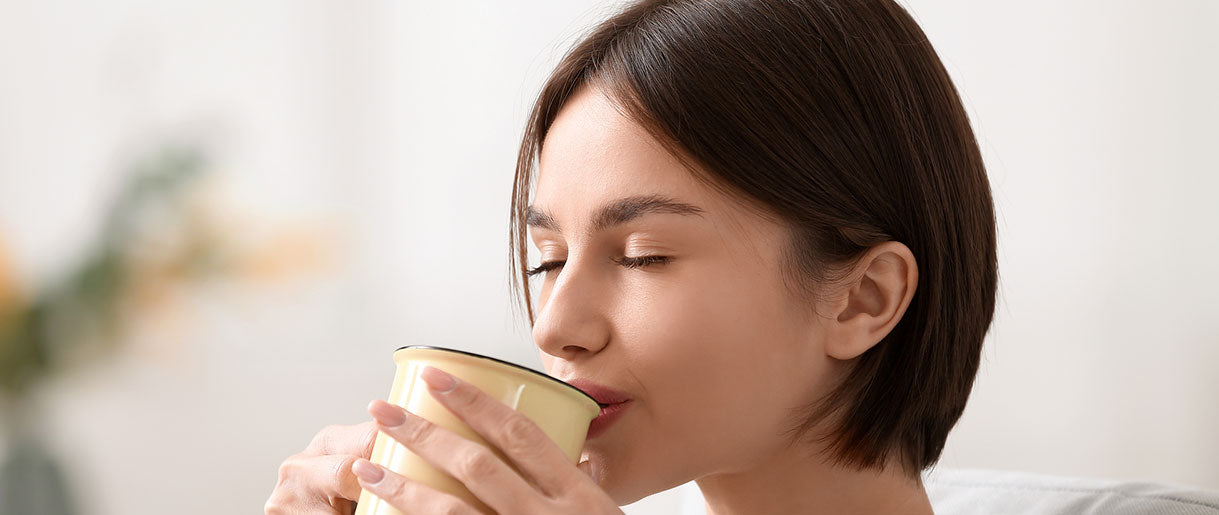

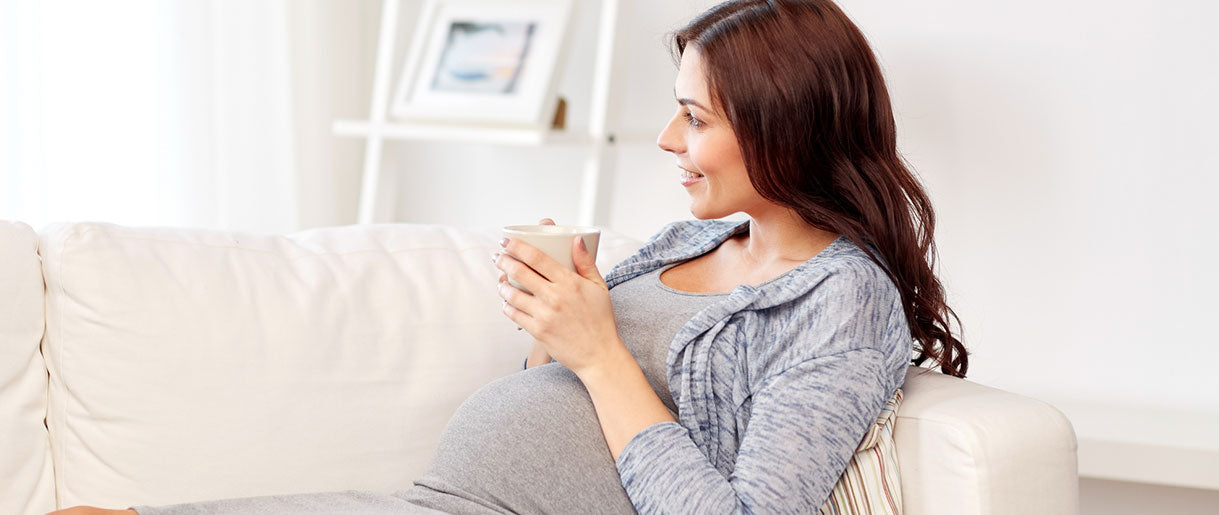
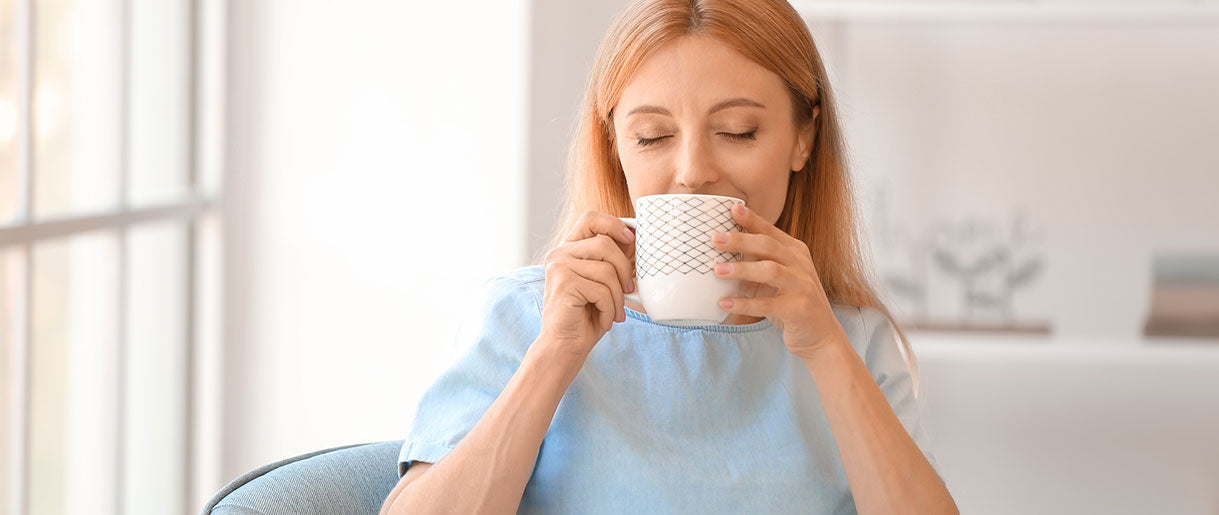
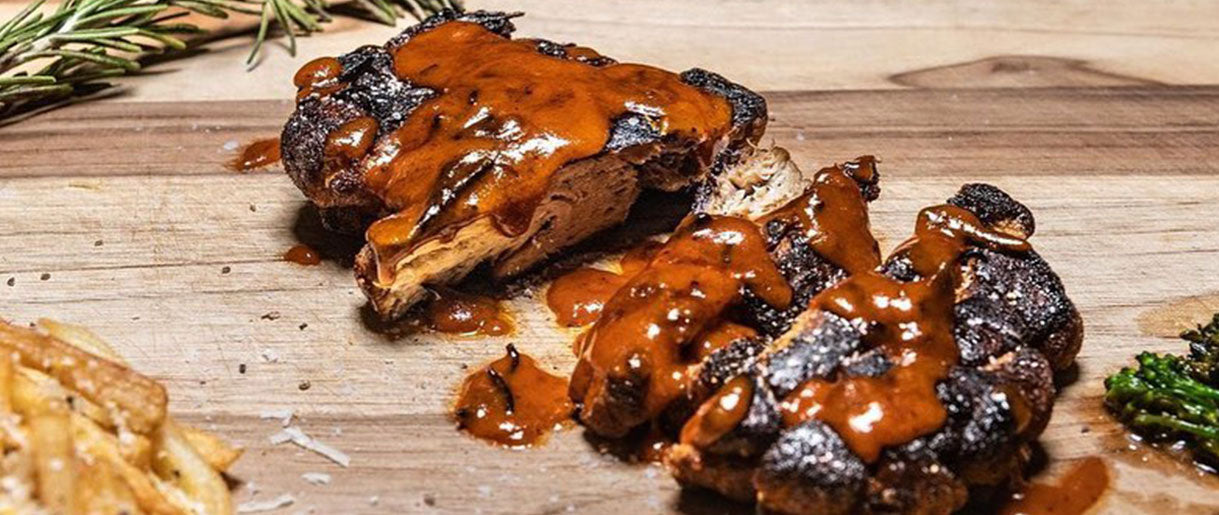
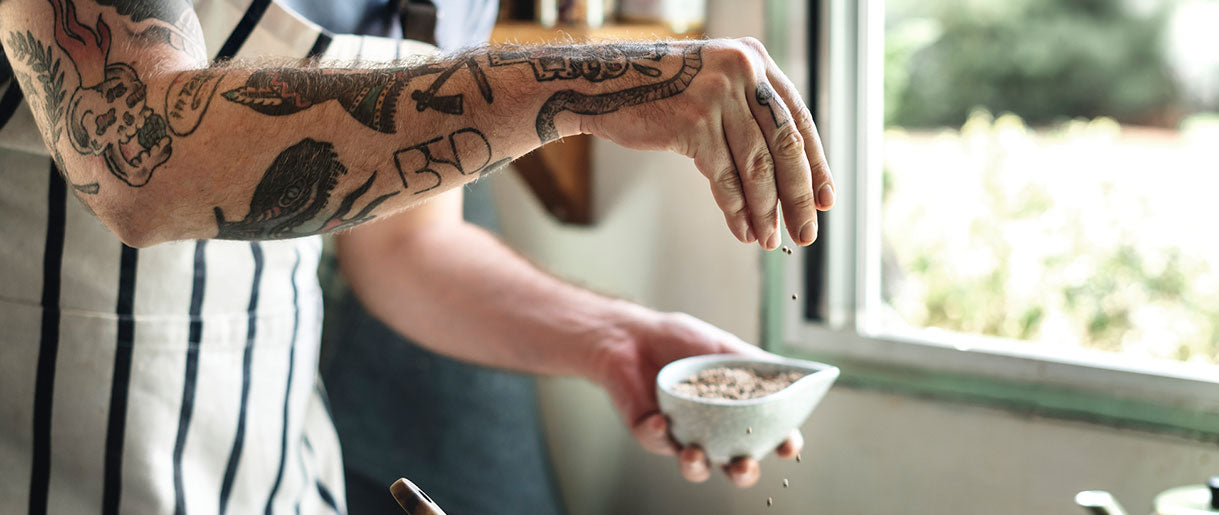
Let Us Know Your Comments